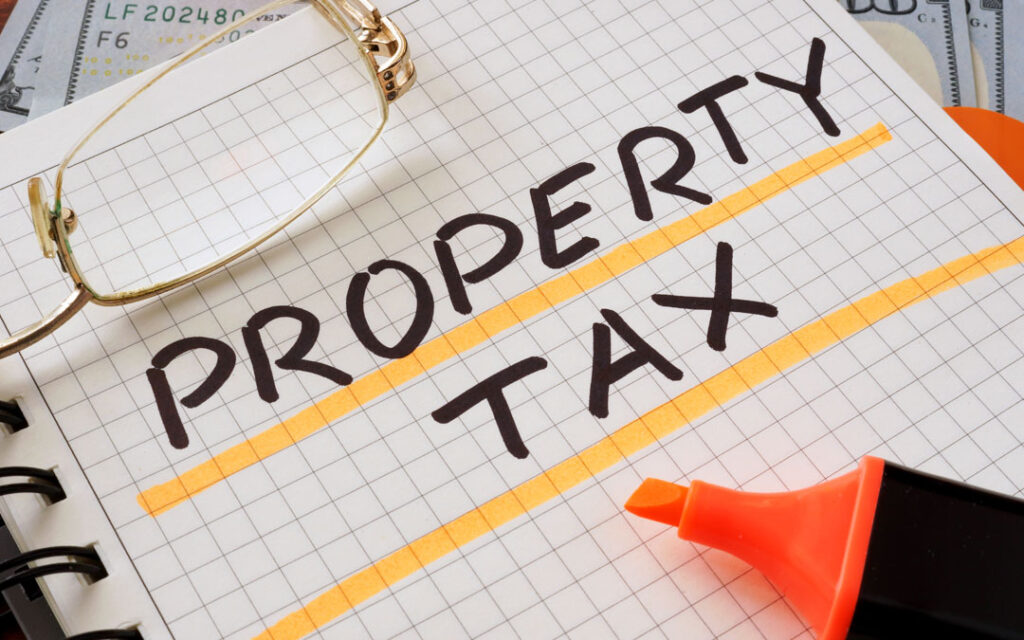
Are you looking for investing in a real estate property and dont know about property taxes? Well, we have got you covered. Property taxes are a necessary expense for any homeowner, but the rates can vary widely depending on where you live. Given below we’ll discuss the importance of understanding property tax rates in your area, how they are calculated, and how they can affect your overall financial planning.
This blog covers all the buzzwords such as Average property tax rates, Tax rates comparison, Residential taxes, Real estate taxes, and Average property tax rates for commercial properties. So, let’s get started and explore everything you need to know about property tax rates in your area.
How Property Taxes Are Calculated And What Factors Influence Them
The computation of average property tax rates is determined by the overall value of the property, which encompasses both the land and any structures built on it. Tax assessors typically evaluate the property every one to five years and bill the recorded owner based on the set standards of the taxing authority. The assessors determine the property’s value by applying the mill levy or millage tax and the assessed property value.
Real estate taxes are one of the most significant expenses that property owners have to contend with, and several factors can influence the amount of tax owed. One of the most significant factors is the overall value of the property, which includes both the land and any structures built on it. Other factors include the type and use of the property, the local tax rates set by the governing authority, and any exemptions or deductions available to the property owner.
Another factor that can influence property taxes is the age and condition of the property. Older properties may be subject to higher tax rates due to the need for repairs or renovations. Similarly, properties that are located in areas with higher crime rates or less desirable neighborhoods may also be subject to higher tax rates.
Furthermore, the average property tax rates for commercial properties depend on the changes in the local real estate market can also impact property taxes. If property values increase in a given area, tax assessors may reassess the value of properties in that area, resulting in higher tax bills for property owners.
Ultimately, property taxes are a complex and ever-changing aspect of property ownership. Understanding the various factors that can influence the amount of tax owed can help property owners plan and budget accordingly. It is important to stay up-to-date with changes in local tax rates and regulations to ensure that you are not overpaying on your property taxes.
How to find the average property tax rates in your area
Calculating property tax can be a complex process, as several factors come into play. The formula typically used to determine the amount of property tax owed is based on a series of variables. These variables include the base value of the property, the total built-up area, the age of the property, the type of building, the category of use, and the floor factor.
To arrive at the final property tax amount, the base value of the property is multiplied by the total built-up area, and the resulting figure is then multiplied by the age factor, which takes into account the property’s age. The type of building is also considered, as different types of structures are subject to different tax rates. The category of use, which refers to how the property is utilized (e.g., residential, commercial, industrial), also plays a role in determining the amount of tax owed.
Finally, the floor factor is applied to account for the number of floors in the building. This factor is particularly relevant in multi-story buildings, as each additional floor can result in a higher tax bill.
While this formula can seem complex, it is important to understand how property taxes are calculated to ensure that you are paying the correct amount. Staying up-to-date with changes in local tax regulations and working with a trusted tax advisor can also help property owners make informed decisions regarding their property taxes.
Strategies to lower your property tax bill
Now that we know about property tax, let’s have a look at how to minimize property tax bills.
These strategies include:
- Reviewing the assessment: Property owners can review the assessment of their property to ensure it is accurate and that they are not overpaying on their taxes.
- Claiming exemptions: Property owners can claim exemptions, such as those for senior citizens, veterans, and low-income households, to lower their property tax bills.
- Challenging the assessment: If a property owner believes their assessment is inaccurate, they can challenge it and potentially lower their tax bill.
- Appealing to the board of equalization: If a property owner is dissatisfied with the results of their assessment challenge, they can appeal to the board of equalization to further contest the assessment.
- Understanding the appeals process: Property owners should understand the appeals process and have a strategy in place for navigating it.
- Renovating the property: Renovating the property can increase its value, but it can also result in a higher tax bill. Property owners can strategically time renovations to minimize the impact on their property taxes.
- Paying attention to tax relief programs: Tax relief programs, such as those for historic properties or green buildings, can help reduce property tax bills.
- Combining lots: Property owners with multiple lots can potentially combine them to lower their tax bills.
- Transferring ownership: Property owners can transfer ownership of their property to a family member or trust to lower their tax bills.
- Knowing the tax code: Property owners should understand the tax code and be aware of any deductions or credits that may be available to them.
Conclusion
To effectively manage property taxes and make informed choices when investing in real estate, it is crucial to have a comprehensive understanding of the average property tax rates in your area. Being aware of these rates can help you anticipate and budget for property taxes and make well-informed decisions when buying or selling property. Moreover, staying current with changes in local tax regulations and working with reliable advisors can prevent any potential penalties or overpayments on property taxes.







